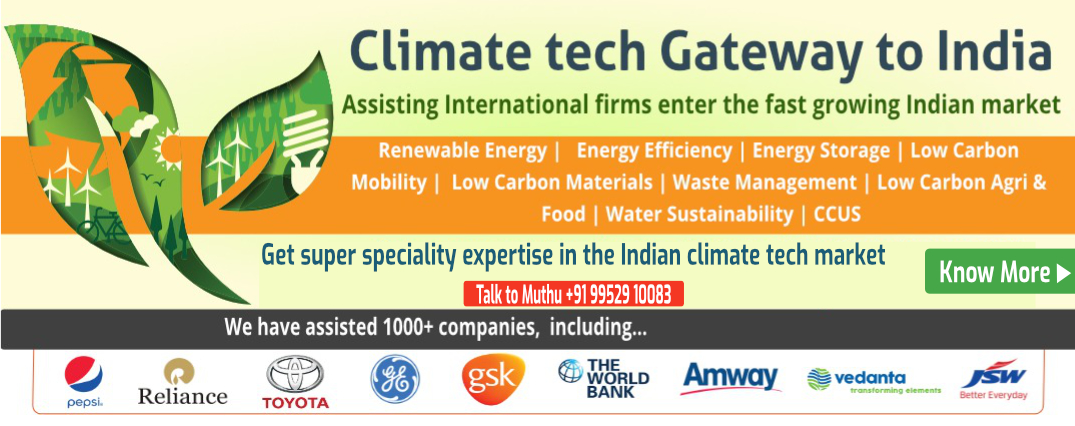This post is a part of Climate G2I Intelligence series from Energy Alternatives India (EAI), India’s leading climate-tech consulting firm.
G2I stands for Gateway 2 India, and provides comprehensive market intelligence and go-to market assistance for International firms entering the Indian climate-tech market. More about Climate G2I from here
In a move that highlights the growing potential of the waste-to-energy sector in India, Norfund, the Norwegian Investment Fund for Developing Countries, has invested $10 million in Sael, an Indian company that converts agricultural waste into clean energy. This investment will help Sael expand its operations and contribute to India’s clean energy goals.
Sael is a leading player in the Indian waste-to-energy sector. The company uses a proprietary technology to convert agricultural waste, such as rice straw and sugarcane bagasse, into clean energy. Sael’s plants generate electricity that is fed into the grid, helping to reduce India’s reliance on fossil fuels.
Indian waste-to-energy market
Net Zero by Narsi
Insights and interactions on climate action by Narasimhan Santhanam, Director - EAI
View full playlistThe Indian waste-to-energy market is expected to grow at a CAGR of 20% over the next five years, driven by factors such as increasing waste generation, growing awareness of environmental issues, and government support for renewable energy. The market is currently estimated to be worth around $1 billion, and it is expected to reach $5 billion by 2025.
The market is booming with investments pouring in and cutting-edge technology emerging. However, hurdles like complex regulations, limited financing, and public concerns exist.
Key players include waste-to-energy companies, waste management companies, power producers, and government agencies. Recognizing the immense potential of the Indian market, foreign and domestic players are joining forces to unlock the power of waste-to-energy (WtE). Joint ventures like Sterling & Wilson and Hitachi Zosen’s 50 MW plant, or Arc Energy and Wheelabrator’s 60 MW project, are testaments to this collaborative spirit. Beyond developers, waste-to-energy companies are forging partnerships with waste management firms like Ramky Enviro Services to ensure consistent, high-quality feedstock.
This synergy extends to research institutions and technology providers as well, with Tata Power and IIT Bombay developing advanced gasification technology and Vedanta partnering with Neste for co-processing expertise. These collaborations are crucial for navigating local complexities, accelerating technological advancements, and ultimately achieving India’s WtE ambitions.
The government also actively supports WtE with feed-in tariffs, tax breaks, and streamlining regulations. Recent investments and project announcements showcase the sector’s potential. Technological advancements like plasma gasification and bioreactors promise improved efficiency.
Challenges include inadequate waste segregation, public opposition, and fly ash management. Continued government support, public awareness campaigns, and innovative solutions are crucial to overcome these hurdles.
Overall, India’s WtE sector holds immense promise for sustainable waste management and clean energy generation. By addressing challenges and seizing opportunities, India can turn waste into a valuable resource for a brighter future.
This post is a part of Climate G2I Intelligence series from Energy Alternatives India (EAI), India’s leading climate-tech consulting firm.
G2I stands for Gateway 2 India, and provides comprehensive market intelligence and go-to market assistance for International firms entering the Indian climate-tech market. More about Climate G2I from here






 Our specialty focus areas include
Our specialty focus areas include



